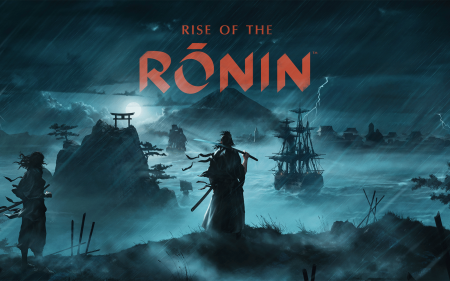If you haven’t heard of Until Dawn, don’t feel bad. Not enough people have and in all likelihood not enough people will have heard of this game until it’s far too late. An unexpectedly great horror game that works on multiple levels, with the player in the starring role at all times – even when they don’t want to be. And it looks fantastic (for the most part) on the PlayStation 4. But you’re going to want to watch your back while playing, because an errant hand on your shoulder is just a prelude to a coronary with Until Dawn.
Let The Cliches Begin
 A group of high-school or college teenagers? Check. A spooky and isolated location far from parental supervision and any kind of police and/or medical assistance? Check. An unusual entity in the woods? Check. A poorly thought-out practical joke that ends in tragedy? Check. Raging hormones (in at least a few cases)? Check. Suspicion, paranoia and fear among friends? Check.
A group of high-school or college teenagers? Check. A spooky and isolated location far from parental supervision and any kind of police and/or medical assistance? Check. An unusual entity in the woods? Check. A poorly thought-out practical joke that ends in tragedy? Check. Raging hormones (in at least a few cases)? Check. Suspicion, paranoia and fear among friends? Check.
Until Dawn packs in a whole lot of cliches from a variety of familiar horror genres. If you decided to make a drinking game out of all the tropes that you’ve seen in the past – or even just the ones that have been done to death – then you’d wind up in hospital before you got to the end of Until Dawn. But as you’re controlling each of these teenagers through their survive-until-dawn mission, you’ll completely forget that these tropes exist. The cliches are melded together so well that you won’t even see them until later reflection.
All The Horror In The World
 And that’s because Until Dawn wants to make you crap your pants. They’ve still got a way to go before getting that far but they will make you jump in terror, fright and fear. Those are three distinctly different feelings, by the way. Until Dawn attempts to combine as many types of horror in a single game as possible and you’ll be choosing what you want – in a manner of speaking.
And that’s because Until Dawn wants to make you crap your pants. They’ve still got a way to go before getting that far but they will make you jump in terror, fright and fear. Those are three distinctly different feelings, by the way. Until Dawn attempts to combine as many types of horror in a single game as possible and you’ll be choosing what you want – in a manner of speaking.
Until Dawn‘s story and gameplay consists of jump-scares, in as cheap a manner as possible, as well as some body-horror, psychological horror and the sort of fright generated by 90s slasher films. There are a few of the creeps you’d get from the likes of Hellraiser or The Suffering, if you want to stick to genuinely scary video games, but it’s going to be the jump-scare that comes back to slam your heart into your throat. Over and over again.
Quick Time Events Aplenty
 You’ll notice that I haven’t said a thing about the storyline aside from the cliches above. That’s because you need to go into Until Dawn as spoiler-free as possible and the storyline actually alters depending on how you play. The whole point is to get the collection of young adults through to the next morning, but there’s a lot out in the darkness that doesn’t want anyone to survive. But how your charges do (or don’t) make it through to the light might get prove annoying for some gamers.
You’ll notice that I haven’t said a thing about the storyline aside from the cliches above. That’s because you need to go into Until Dawn as spoiler-free as possible and the storyline actually alters depending on how you play. The whole point is to get the collection of young adults through to the next morning, but there’s a lot out in the darkness that doesn’t want anyone to survive. But how your charges do (or don’t) make it through to the light might get prove annoying for some gamers.
That’s because control is limited. Players are able to move around – sometimes – and look around as well as interact with pre-determined objects and items. That’s actually the entirety of gameplay: It’s all predetermined in one way or another. Another way to explain it is to say that Until Dawn gives you basic control in between Quick Time Event sections that link a morphing-according-to-your-choices storyline. If you hate QTEs, you might dislike this game but the developers have actually made this hated feature quite palatable.
Small Cause, Large Effect
 Which is just as well, because you’re going to want to play Until Dawn more than once, even in the face of a whole slew of revelations that will come by the last third of the game – depending on how you played through the first time. And players will be able to get a different experience completely, thanks to the Butterfly Effect.
Which is just as well, because you’re going to want to play Until Dawn more than once, even in the face of a whole slew of revelations that will come by the last third of the game – depending on how you played through the first time. And players will be able to get a different experience completely, thanks to the Butterfly Effect.
The Butterly Effect is a feature that tracks player choices and you will actually see how a tiny alteration will change the outcome of a situation. Did you give a weapon to someone who wasted it? Were you a selfish little git who left a friend behind? Did you reflex-kill a valuable support character? Those seem like pretty big choices but even who you side with in a conversation or which direction you took while being chased can change the course of the tale. And then there are the psychological assessments…
Verdict
Until Dawn is a surprise, a cliched, Quick-Time Event laden experience that manages to transcend its baser nature and become something that will have your eyeballs glued to the screen as you make choice after choice, hoping all the while that you’re not going to get everyone killed. And if you do screw up, you can always start everything all over again and completely change the outcome. Whether that’s for the better… that remains to be seen.




